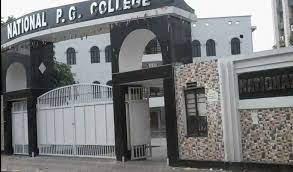Admission to a Certificate in Forensic Science program typically requires a high school diploma or its equivalent. Some programs may have additional requirements, such as background checks or prerequisites in science-related subjects. Prospective students should check the specific admission criteria
Admission Process for Certificate in Forensic Science Course
Forensic science is a captivating field that plays a crucial role in solving crimes and delivering justice. If you're interested in pursuing a Certificate in Forensic Science, understanding the admission process is vital. In this comprehensive guide, we will provide a detailed overview of the typical steps involved in securing admission to a Certificate in Forensic Science program.
1. Program Research and Selection: Before delving into the admission process, it's essential to research and identify institutions that offer Certificate in Forensic Science programs. Consider factors such as program accreditation, course content, faculty expertise, laboratory facilities, and the institution's reputation in the field of forensic science.
2. Eligibility Criteria: Eligibility criteria for admission to a Certificate in Forensic Science program may vary among institutions. However, common requirements typically include.
i) Educational Qualifications: Most programs accept applicants with a high school diploma or equivalent. Some programs may require prior coursework in science-related subjects.
ii) Language Proficiency: If the program is conducted in a language other than your native language, you may need to demonstrate proficiency in that language through standardized tests like TOEFL or IELTS.
3. Document Preparation: To build a strong application package, gather the necessary documents.
i) Application Form: Complete the application form provided by the institution offering the program. Ensure that you provide accurate and complete information.
ii) Transcripts: Some programs may require transcripts of your previous educational qualifications, although this is often not necessary for certificate programs.
iii) Letters of Recommendation: Depending on the program's requirements, you may need to submit letters of recommendation from teachers, employers, or professionals who can attest to your suitability for the program.
iv) Statement of Purpose (SOP): Write a well-crafted SOP outlining your motivations for pursuing a Certificate in Forensic Science, your interests in the field, and your career goals related to forensic science.
4. Application Submission: Once you've prepared all the necessary documents and completed the application form, submit your application to the institution offering the program. Ensure that you adhere to the specified deadlines and follow any specific instructions provided.
5. Application Fee: Many institutions charge an application fee to process your application. The fee amount can vary, so inquire about this fee and make the necessary payments as instructed.
6. Admission Review: The admissions committee or program coordinators will review your application package. They will assess various factors, including your educational qualifications, statement of purpose, and your interest in forensic science. Some programs may also conduct interviews or evaluate your understanding of the field during the review process.
7. Admission Decision: Once the admissions committee has reviewed all applications, you will receive notifications of your admission status. Typically, these notifications are sent via email or through the institution's application portal. If accepted, you will receive formal admission letters outlining the next steps, including enrollment procedures and deadlines.
8. Financial Considerations: Certificate programs are often more affordable than degree programs, but it's essential to consider tuition fees, materials costs, and any additional expenses associated with laboratory work or fieldwork. Investigate whether the institution offers scholarships, grants, or financial aid options that can help support your education.
9. Enrollment and Orientation: After being admitted, students must complete the enrollment and registration procedures as outlined by the institution. This includes submitting any required financial documents, confirming your intent to enrol, and selecting courses for the certificate program. Participation in orientation sessions is crucial to acquaint yourself with the institution, its forensic science department (if applicable), and program expectations.
10. Commencement of Classes and Forensic Science Studies: The Certificate in Forensic Science program typically includes courses in forensic biology, forensic chemistry, crime scene investigation, and legal aspects of forensic science. Students engage in practical training, laboratory work, and case studies to gain hands-on experience in the field.
11. Certificate Completion: After successfully fulfilling all program requirements, you will complete your Certificate in Forensic Science. This credential can enhance your qualifications and open up opportunities in areas such as forensic analysis, crime scene investigation, law enforcement, and legal support services.
 1 Years
1 Years
 Certificate
Certificate
 Science
Science
 Full Time
Full Time





 back
back